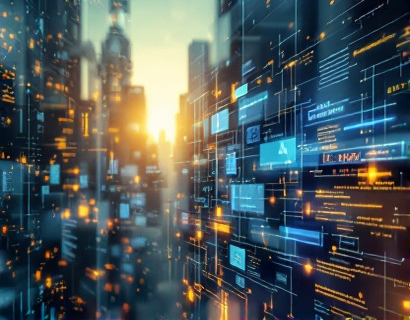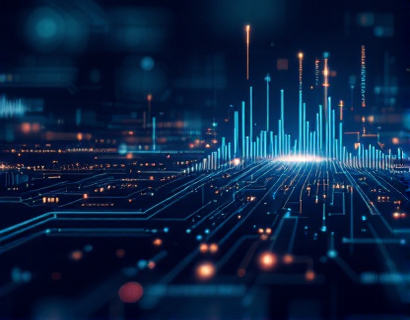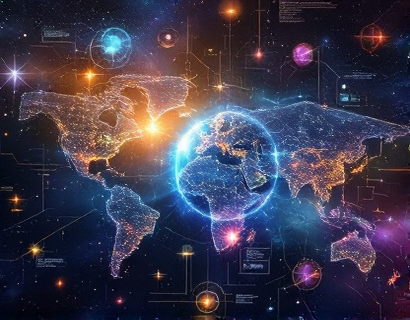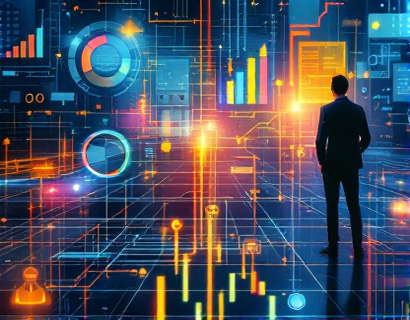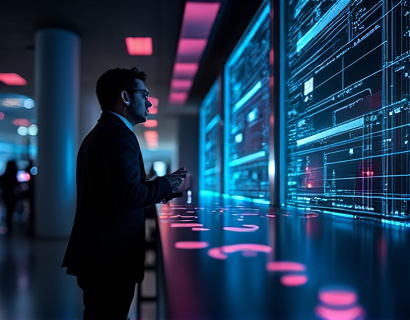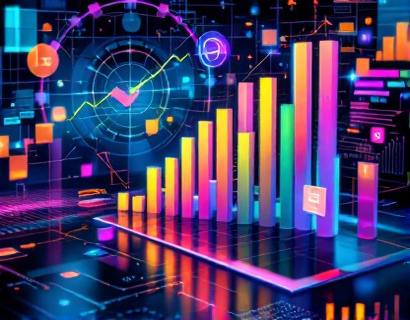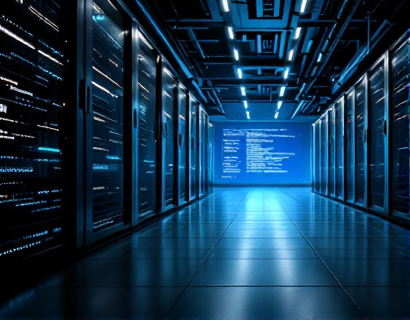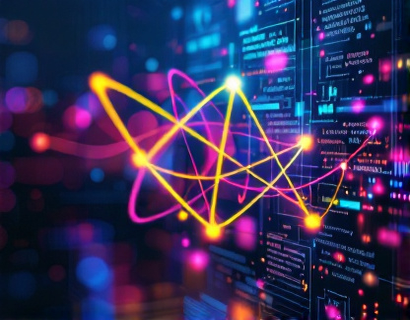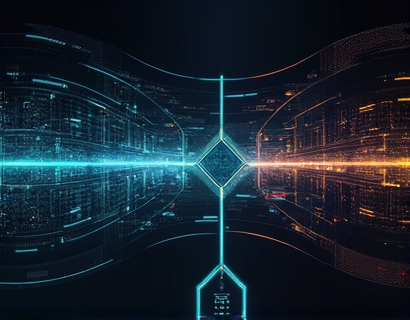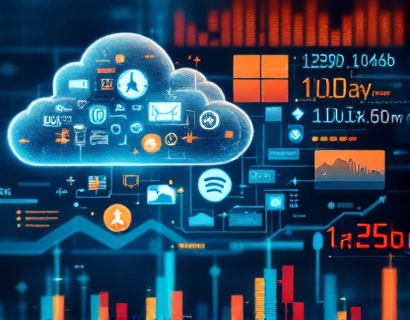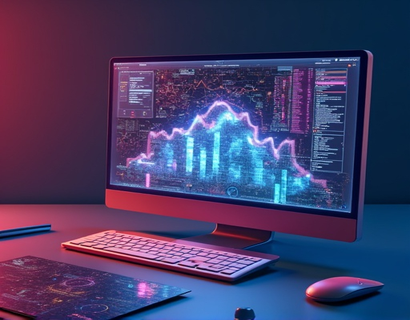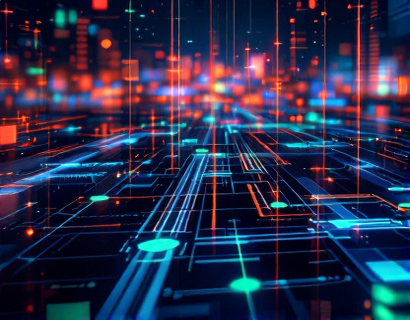AI and Crypto: Transforming Ucosystem Engagement Through Advanced Technology
The intersection of artificial intelligence and cryptocurrency is revolutionizing the way we interact with digital ecosystems. This synergy is not just about combining two advanced technologies but about creating a new paradigm where online interactions are more intuitive, secure, and rewarding. As we delve into this topic, it's essential to understand how these technologies individually impact the digital landscape and how their convergence is setting a new standard for connectivity and opportunity.
Artificial intelligence has been a game-changer in various industries, from healthcare to finance. In the context of the digital ecosystem, AI enhances user experiences by personalizing content, optimizing search results, and automating complex tasks. For instance, AI-driven chatbots provide instant customer support, reducing response times and improving user satisfaction. In the realm of cryptocurrency, AI algorithms analyze market trends, predict price movements, and automate trading strategies, making investing more accessible and efficient.
Cryptocurrency, on the other hand, has disrupted traditional financial systems by introducing decentralized, transparent, and secure transactions. Blockchain technology, the backbone of cryptocurrencies, ensures that transactions are immutable and verifiable without the need for intermediaries. This has opened up new possibilities for financial inclusion, enabling people in underserved regions to participate in the global economy. The combination of AI and cryptocurrency amplifies these benefits, creating a more robust and user-friendly digital environment.
The integration of AI and cryptocurrency is transforming user engagement in several ways. First, AI enhances the security of cryptocurrency transactions. Machine learning algorithms can detect and prevent fraudulent activities by identifying patterns and anomalies in transaction data. This not only protects users but also builds trust in the cryptocurrency ecosystem. Moreover, AI-powered identity verification systems ensure that only authorized users access certain services, adding an extra layer of security.
Second, AI improves the user interface and experience of cryptocurrency applications. Natural language processing (NLP) enables users to interact with digital wallets and trading platforms using voice commands or natural language queries. This makes the technology more accessible to a broader audience, including those who may not be tech-savvy. Additionally, AI-driven recommendation systems suggest personalized investment strategies based on user preferences and market conditions, enhancing the overall user experience.
The synergy between AI and cryptocurrency also extends to the development of decentralized applications (dApps). These applications leverage blockchain technology and AI to create decentralized versions of traditional services, such as lending, insurance, and gaming. AI algorithms optimize these services by analyzing user behavior, predicting demand, and adjusting parameters in real-time. For example, a decentralized lending platform can use AI to assess creditworthiness more accurately, reducing the risk of default and improving loan approval rates.
Another significant area where AI and cryptocurrency intersect is in the realm of smart contracts. Smart contracts are self-executing contracts with the terms of the agreement directly written into code. AI can enhance smart contracts by adding predictive analytics and automated decision-making capabilities. For instance, an AI-powered smart contract can automatically adjust insurance premiums based on real-time data such as driving behavior or weather conditions. This not only streamlines processes but also makes them more dynamic and responsive to changing circumstances.
The impact of AI on cryptocurrency extends beyond individual applications to the broader market dynamics. AI-driven market analysis tools provide deeper insights into market trends, helping investors make more informed decisions. These tools can process vast amounts of data from various sources, including social media, news articles, and transaction records, to identify patterns and predict future movements. This level of analysis was previously only accessible to large institutions with significant resources, but AI democratizes this information, making it available to a wider audience.
Furthermore, AI is playing a crucial role in the development of stablecoins, cryptocurrencies designed to maintain a stable value relative to traditional currencies. AI algorithms can monitor and adjust the supply of stablecoins in real-time to maintain price stability. This is achieved by analyzing market conditions and automatically buying or selling underlying assets to keep the stablecoin's value within a specified range. The precision and speed of AI in this context are invaluable, contributing to the reliability and adoption of stablecoins.
The convergence of AI and cryptocurrency is also fostering innovation in the field of decentralized finance (DeFi). DeFi platforms offer a range of financial services, from lending and borrowing to yield farming and decentralized exchanges, all without central intermediaries. AI enhances these platforms by optimizing liquidity, managing risks, and personalizing user experiences. For example, AI can analyze user transaction history and risk tolerance to recommend the most suitable DeFi products, improving the overall user experience and increasing platform adoption.
In addition to these practical applications, the combination of AI and cryptocurrency is driving advancements in blockchain scalability and interoperability. AI algorithms can optimize blockchain networks by predicting and managing network congestion, ensuring smoother and faster transactions. Interoperability solutions, which allow different blockchain networks to communicate and transfer assets seamlessly, can be enhanced by AI to identify and resolve compatibility issues automatically. This not only improves the efficiency of blockchain networks but also broadens their applicability across various industries.
The potential for AI and cryptocurrency to transform the digital ecosystem is vast, but it also comes with challenges. One of the primary concerns is the regulatory landscape. As these technologies evolve, regulators are grappling with how to oversee and govern them effectively. AI can assist in compliance by monitoring transactions and activities for potential regulatory violations, ensuring that platforms remain within legal boundaries. However, the dynamic nature of AI and cryptocurrency requires ongoing collaboration between technologists, policymakers, and industry stakeholders to create a balanced and effective regulatory framework.
Another challenge is the technical complexity involved in integrating AI with blockchain and cryptocurrency systems. Developing robust and secure AI models that can operate on decentralized networks requires specialized knowledge and resources. However, as the technology matures and more tools become available, the barriers to entry are decreasing. Open-source projects and community-driven initiatives are playing a crucial role in democratizing access to these advanced technologies, fostering innovation and collaboration.
The future of AI and cryptocurrency is promising, with numerous opportunities for growth and development. As more tech-savvy innovators and early adopters explore this space, we can expect to see new applications and use cases emerge. For instance, AI-powered virtual assistants integrated with cryptocurrency wallets could provide users with real-time financial advice and transaction management. Similarly, AI-driven predictive maintenance for blockchain infrastructure could ensure the reliability and uptime of decentralized networks.
In conclusion, the synergy between AI and cryptocurrency is transforming the digital ecosystem by enhancing security, personalization, and efficiency. This powerful combination is not only improving user experiences but also opening up new possibilities for innovation and growth. As the technology continues to evolve, it will be exciting to witness how these advancements shape the future of online interactions and digital opportunities.




